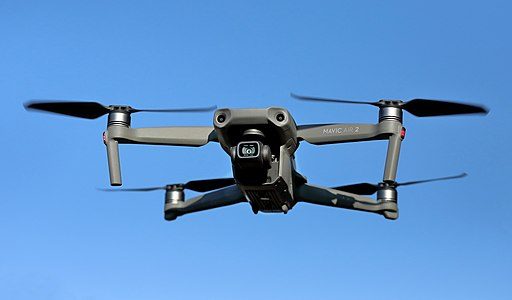Legislation aims to limit Chinese drone manufacturers’ access to U.S. infrastructure
On September 9, 2024, the U.S. House of Representatives passed the Countering CCP Drones Act, a bipartisan bill introduced by Congresswoman Elise Stefanik (R-NY) designed to address concerns about the presence of Chinese drones, specifically those from Da-Jiang Innovations (DJI), in U.S. infrastructure. The legislation seeks to add DJI to the Federal Communications Commission’s (FCC) Covered List. The legislation could effectively prohibit new models of DJI drones from operating on U.S. communications networks.
National Security Concerns
The Countering CCP Drones Act is driven by national security concerns raised by multiple U.S. government agencies regarding DJI’s ties to the Chinese government. Since 2017, U.S. intelligence agencies have flagged DJI for allegedly sharing sensitive data with the Chinese Communist Party (CCP), charges that the company denies. The Department of Homeland Security, the Department of Defense (DoD), and the Federal Bureau of Investigation (FBI) have all warned about potential risks posed by Chinese-made drones. Chairman John Moolenaar of the House Select Committee on the Chinese Communist Party stated, “DJI poses a real national security risk to the U.S. given its deep partnership with the Chinese military, its expressed allegiance to the Chinese Communist Party, and its surveillance technology operating across U.S. soil.”
In addition, some lawmakers fear that geopolitical conflicts or other events could disrupt the supply chain, leaving the US without access to critical drone technology. Congresswoman Stefanik emphasized the importance of the bill, saying, “It is strategically irresponsible to allow Communist China to be our drone factory.” She added that the passage of the legislation was a crucial step toward ending DJI’s dominance in the U.S. market and protecting the nation’s skies.
Concerns from the Drone Industry
While the Countering CCP Drones Act is intended to address security risks, some drone service providers and first responders worry that limiting access to affordable DJI drones could slow the growth of the U.S. drone industry. DJI drones, which have been widely used due to their cost-effectiveness and technological capabilities, are relied upon by many businesses in the drone ecosystem: including those in agriculture, construction, and public safety. Restricting access to DJI products could increase the cost of adopting drone technology for small businesses and public agencies.
The Senate Version of the Countering CCP Drones Act
In response to these concerns, Senator Mark Warner (D-VA), Chair of the Senate Select Committee on Intelligence, co-introduced a related bill, the Countering CCP Drones and Supporting Drones for Law Enforcement Act on July 30, 2024. This bill, which was introduced alongside Senator Rick Scott (R-FL), not only aims to blacklist DJI but also includes provisions to support American-made drones. Warner emphasized the balance between security and industry support, stating, “Drones have tremendous potential to support agriculture, make our communities safer, and grow our economy. Yet without further intervention, the drone industry could be susceptible to massive intervention from the Communist Party of China.”
Support for First Responders
Recognizing the potential impact on first responders who rely on DJI drones for critical operations, Senator Warner and Senator Scott’s bill proposes a short-term grant program. The Department of Transportation would oversee this program, offering financial support to help public safety agencies replace existing Chinese drones with U.S.-made alternatives. Senator Scott highlighted the importance of security in public safety operations, saying, “Drones made in Communist China pose a significant threat to our freedoms and security and cannot be allowed to continue operating in American skies.”
Next Steps for the Legislation
With the Countering CCP Drones Act passing in the House, the next step is for the Senate to review and potentially include the legislation in its version of the National Defense Authorization Act (NDAA) for Fiscal Year 2025. Senators Warner and Scott have already filed their version of the bill as an amendment to the NDAA. If the Senate passes the bill, it will go to the President’s desk for final approval.
For more information, see the full text of H.R. 2864 on the Congressional website.
While the Countering CCP Drones Act addresses legitimate national security concerns, the legislation’s potential impact on the drone industry cannot be ignored. As the Senate reviews the bill, industry stakeholders will be watching closely. Balancing security measures with the need for affordable, accessible drone technology will be critical as the U.S. navigates its path toward building a secure and competitive domestic drone industry.
Read more:
Miriam McNabb is the Editor-in-Chief of DRONELIFE and CEO of JobForDrones, a professional drone services marketplace, and a fascinated observer of the emerging drone industry and the regulatory environment for drones. Miriam has penned over 3,000 articles focused on the commercial drone space and is an international speaker and recognized figure in the industry. Miriam has a degree from the University of Chicago and over 20 years of experience in high tech sales and marketing for new technologies.
For drone industry consulting or writing, Email Miriam.
TWITTER:@spaldingbarker
Subscribe to DroneLife here.


